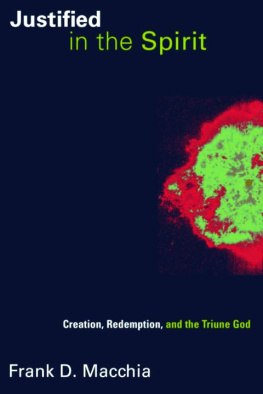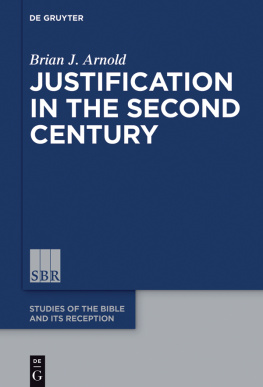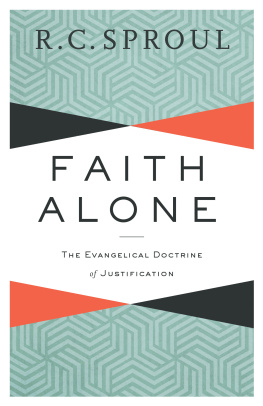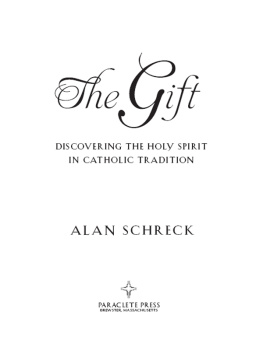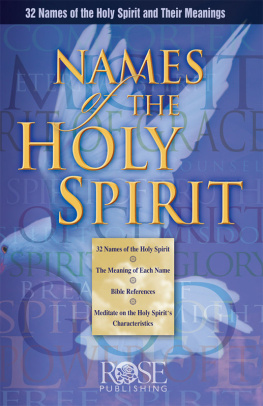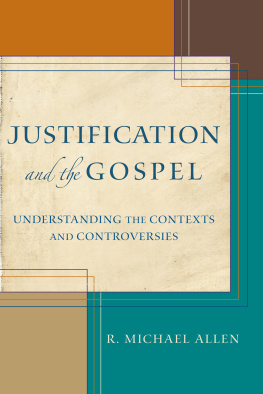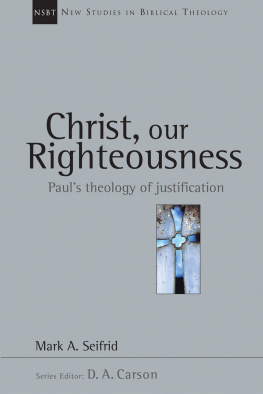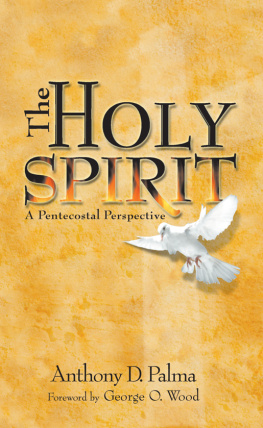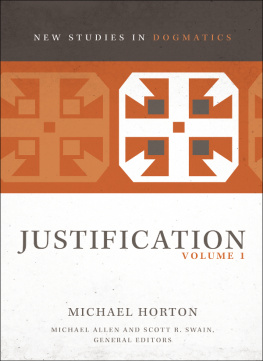

James K. A. Smith and Amos Yong, Editors

PENTECOSTAL MANIFESTOS will provide a forum for exhibiting the next generation of Pentecostal scholarship. Having exploded across the globe in the twentieth century, Pentecostalism now enters its second century. For the past fifty years, Pentecostal and charismatic theologians (and scholars in other disciplines) have been working "internally," as it were, to articulate a distinctly Pentecostal theology and vision. The next generation of Pentecostal scholarship is poised to move beyond a merely internal conversation to an outwardlooking agenda, in a twofold sense: first, Pentecostal scholars are increasingly gaining the attention of those outside Pentecostal/ charismatic circles as Pentecostal voices in mainstream discussions; second, Pentecostal scholars are moving beyond simply reflecting on their own tradition and instead are engaging in theological and cultural analysis of a variety of issues from a Pentecostal perspective. In short, Pentecostal scholars are poised with a new boldness:
Whereas the first generation of Pentecostal scholars was careful to learn the methods of the academy and then "apply" those to the Pentecostal tradition, the next generation is beginning to interrogate the reigning methodologies and paradigms of inquiry from the perspective of a unique Pentecostal worldview.
Whereas the first generation of Pentecostal scholars was faithful in applying the tools of their respective trades to the work of illuminating the phenomena of modern Pentecostalism, the charismatic movements, and (now) the global renewal movements, the second generation is expanding its focus to bring a Pentecostal perspective to bear on important questions and issues that are concerns not only for Pentecostals and charismatics but also for the whole church.
Whereas the first generation of Pentecostal/ charismatic scholars was engaged in transforming the anti-intellectualism of the tradition, the second generation is engaged in contributing to and even impacting the conversations of the wider theological academy.
PENTECOSTAL MANIFESTOS will bring together both high-profile scholars and newly emerging scholars to address issues at the intersection of Pentecostal ism, the global church, the theological academy, and even broader cultural concerns. Authors in PENTECOSTAL MANIFESTOS will be writing to and addressing not only their own movements but also those outside of Pentecostal/ charismatic circles, offering a manifesto for a uniquely Pentecostal perspective on various themes. These will be "manifestos" in the sense that they will be bold statements of a distinctly Pentecostal interjection into contemporary discussions and debates, undergirded by rigorous scholarship.
Under this general rubric of bold, programmatic "manifestos," the series will include both shorter, crisply argued volumes that articulate a bold vision within a field as well as longer scholarly monographs, more fully developed and meticulously documented, with the same goal of engaging wider conversations. Such PENTECOSTAL MANIFESTOS are offered as intrepid contributions with the hope of serving the global church and advancing wider conversations.
PUBLISHED
Frank D. Macchia, Justified in the Spirit: Creation, Redemption, and the Triune God (2010)
James K. A. Smith, Thinking in Tongues: Pentecostal Contributions to Christian Philosophy (2010)
Wolfgang Vondey, Beyond Pentecostalism: The Crisis of Global Christianity and the Renewal of the Theological Agenda (2010)
Frank D. Macchia




In memory of my father, the Reverend Mike D. Macchia (1927-2010), who preached and exemplified the gospel of God's grace
ix
PART ONE
Reaching for the Spirit
Contrasting Models of Justification
Framing the Issue of Justification and the Spirit
The Catholic View of Justification
The Protestant View of Justification
The Exploration of a Pentecostal Metaphor
PART TWO
Justification for Us
The Basis of Justification
Justifying Righteousness in the Old Testament
Justification and the Spirit-Indwelt Christ
Justification and Spirit Baptism
PART THREE
Justification Among Us
The Eschatological Fulfillment of Justification
By the Spirit through Faith
The Justified Community
Toward a Trinitarian Theology of Justification
A Concluding Reflection
There are many who have offered some form of encouragement and support to me in writing this book. Of greatest importance, of course, are my wife, Verena, and my daughters, Desiree and jasmine, who willingly sacrificed valuable time with me as I sat long hours at the computer. Their gracious support and encouragement were meaningful signs of the grace of which I write in the pages that follow. I also wish to express gratitude to my parents and the Pentecostal church of my upbringing for raising me to cherish a gospel that was substantially about the gift of God's indwelling presence. My father's preaching was the first and enduringly most important exposure to the grace involved in that divine embrace. The dedication is but a small token of my gratitude to him.
No theologian is an island, but he or she works as part of a community of scholars. The Vanguard University School of Religion has responded with understanding and patience to those key moments when I hunkered down to bring this manuscript to completion. In addition, various colleagues have taken substantial time to engage me in conversation on salient points related to justification or parts of this manuscript. Ralph Del Colle, Dale Coulter, D. Lyle Dabney, Thomas Finger, Dale Irvin, Rich Israel, and Edmund Rybarczyk need to be mentioned in particular. Dabney was the first to spark my interest in the topic of justification and the Spirit, and in this role he has done much to launch me in my thinking, especially with regard to the fascinating ways in which he has elaborated on the work of his mentor, Jurgen Moltmann. Moltmann himself has graciously encouraged me when my seminal thoughts on this issue first appeared in print. Numerous others who have worked with me during my years of participation in the justification and Justice Study Group of the National Council of Churches Faith and Order Commission have also served to inspire my thinking. Jeffrey Gros, Donald Dayton, Despina Prassis, and Ann Riggs deserve special mention here. Last but not least, the dedicated work of my graduate assistants, Walter Alexander and David Peddie, was invaluable as they proofread the chapters, formed indices, and discussed aspects of my thinking with me in insightful ways. It goes without saying, of course, that the contents of - and any errors in - the ensuing chapters are my own.

